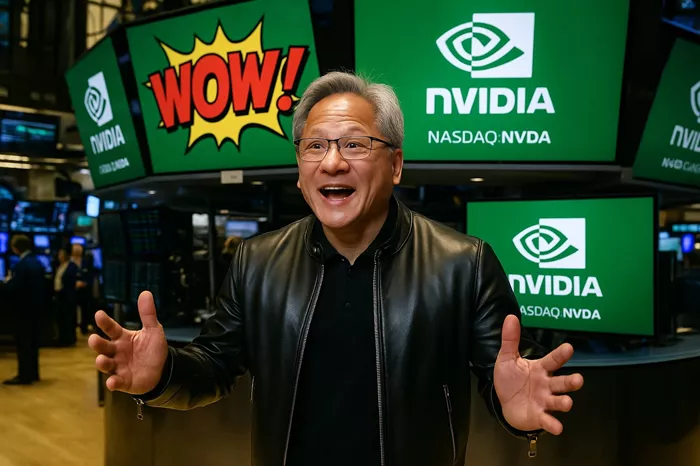Nvidia (NVDA) is set to announce its fiscal first-quarter earnings after market close on Wednesday. This report is highly anticipated by investors and analysts alike.
The company’s stock has seen significant ups and downs this year. Challenges included the Trump administration’s ban on shipping Nvidia’s H20 chips to China and worries over potential semiconductor tariffs.
However, a last-minute easing of Washington’s AI export restrictions and major investment deals announced during former President Trump’s Middle East visit have helped Nvidia’s shares rebound to $135.50. This marks a 1% increase since the start of the year and a roughly 27% rise over the past 12 months as of Tuesday.
Nvidia recently showcased new technologies at the Computex Taipei tradeshow. Among these was a cloud service allowing customers to access Nvidia GPUs through third-party providers like CoreWeave and Foxconn.
For the quarter, analysts expect Nvidia to report adjusted earnings per share (EPS) of $0.88 on revenue of $43.3 billion, up from $0.61 EPS and $26 billion revenue in the same period last year. Data center revenue is projected to surge 74% year-over-year to $39.2 billion, while gaming revenue is expected to rise slightly to $2.8 billion.
China sales are forecasted to hit $6.2 billion, a 150% increase from last year’s $2.4 billion, with the US accounting for $21.6 billion in revenue.
Nvidia disclosed it will take a $5.5 billion charge related to the Trump administration’s ban on its H20 chip sales to China. The H20 chip was designed to comply with Biden administration export restrictions, but tighter Trump-era rules followed after Chinese firms demonstrated strong AI capabilities using less advanced Nvidia chips.
Morgan Stanley analyst Joseph Moore noted that lost H20 sales could reduce revenue by about $1 billion in the current quarter and $5 billion in the next. Nvidia is reportedly developing a modified H20 chip to meet US performance requirements.
CEO Jensen Huang criticized US export policies at Computex, calling them ineffective and advantageous to China’s AI chipmakers.
Nvidia also gained relief when the Trump administration scrapped the Biden administration’s planned AI diffusion export rules. This has paved the way for Nvidia to supply hundreds of thousands of GPUs over five years to Saudi-backed AI startup Humain. Additionally, a new Project Stargate using Nvidia’s Blackwell systems will be built in the UAE.
Bernstein analyst Stacy Rasgon highlighted the significance of Saudi Arabia’s investments, noting they signal strong, strategic AI spending in the region.
READ MORE:


